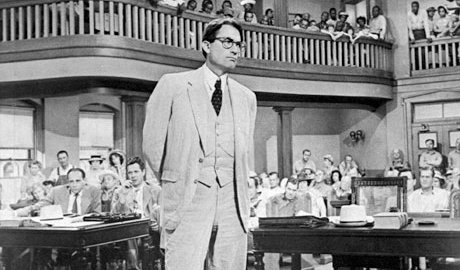The Art of Manliness (or the Latest Self-Help Program)

So I promised I would do a post based on what we can learn about courage from the philosopher of manliness Harvey Mansfield.
But it turns out that there’s a very sophisticated and entertaining website devoted to manliness as a kind of self-help program. And who can deny that many of our problems and miseries these days can be traced to a lack of manliness? There’s even a book full of “manvotionals” entitled Meditations on Manliness. That, of course, is a very evocative title, reminding of us of the meditations of one of the most manly of philosophers, the Stoic philosopher-emperor Marcus Aurelius.
Manliness, Mansfield tells us in his book with that title, refers to the “spirited” (thumotic) part of the soul that Plato was very careful to distinguish from the soul’s rational and desiring parts.
So the fact of manliness is one reason we can turn to Plato to remember that we’re not minds or bodies or even a mixture of the two. We human beings are some third entity that refuses to be reduced to either mind or body.
Because we’re manly, we demand and we prove that we’re more than mere bodies and more than mere minds. We insist on displaying and being recognized for our personal significance.
Manliness allows us to be courageous, in the basic sense of not being governed by fear. It also leads us toward the confidence that we know who we are and what we’re supposed to do.
Manliness leads us in the direction of nobility insofar as it keeps us from being governed by our bodily desires. But it also leads us in the direction of fanaticism or “decisionism” insofar as it keeps us from being governed by reason. Mansfield is almost too careful to tell us that manliness can be either be good or bad, depending on the cause it serves.
That’s why the authors of the art of manliness are so careful to want us to admire the fictional Atticus Finch, who clearly employed his manliness to be governed by reason and a virtuous determination to be of personal service to others.
The website gives us six fine “life lessons” to be learned from Atticus. We learn that Atticus is governed by a a sort of inner fortress that makes him worthy of ruling himself and others. Not to do his duty is to defile himself by not acting on the basis of what he really knows. If he doesn’t truthfully rule himself or assume personal responsibility, then he knows he has no right to rule others, to be a representative in the legislature or even tell his children what to do.
That fortress is manliness in the service of reason. It is characteristic of all men who have real class. He tells Scout not to use the “n-word” in referring to black people because it’s “common.” Atticus has a point of view by which to rise above the moral and intellectual tyranny of the majority.
People worthy of ruling—who know who they are and what they’re supposed to do—are to be distinguished from common people, people lacking in class. One thing To Kill a Mockingbird does not do is show that ordinary people are capable of ruling themselves, of controlling their spiritedness with reason.
So what we really see is that Atticus is a Stoic. The original Atticus was the best friend of the best of the Stoic philosophers—Cicero. The philosopher-physician-novelist Walker Percy wrote in his great essay “Stoicism in the South” that the leading southerners both before and after the big war thought of themselves as Stoics, as Roman patricians reading Great philosophers, as disciples of Epictetus and especially Marcus Aurelius. Percy says that Atticus is based on the very best of the southern gentlemen who really existed.
Their virtues were magnanimity and generosity—both of which lead them to take responsibility for their communities. And, of course, as the website explains, they weren’t short on physical and moral courage.
I will say more later. But, for now, I’m all for a Stoic self-help program, and even a school of psychology built on Stoic science. That’s not to say the Stoics are right about everything. It’s just that they’re strong where we’re weak.
Let me add quickly that a rational, spirited, confident, and admirable Stoic can be a woman. The Stoic in Walker Percy’s first and best novel—The Moviegoer—is Aunt Emily.
And the brilliant and highly responsible Stoic poet who raised Walker Percy—William Alexander Percy—was gay and lacking in the typical martial virtues (although not at all in courage). I tend to think, actually, that Will Percy was the most coherent and deepest of the southern Stoics. Walker Percy would have been nothing without being able to define himself in relation to “Uncle Will.”




